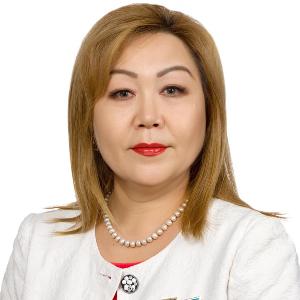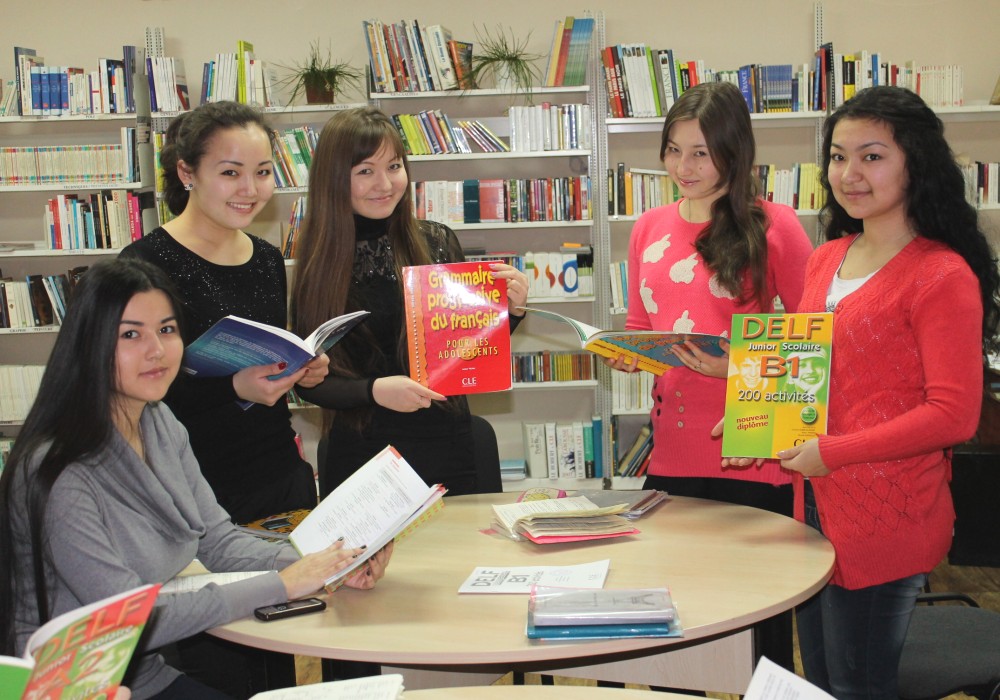Department of Philology
Department of Philology prepares future teachers for the following educational programs (EP):
- Code and classification of the field of education: 6B01 Pedagogical sciences
- Code and classification of the areas of training: 6В017 Training of teachers in languages and literature
Department of Philology prepares future teachers for the following educational programs (EP):
- Code and classification of the field of education: 6B01 Pedagogical sciences
- Code and classification of the areas of training: 6В017 Training of teachers in languages and literature
Educational programs:
Name of groups of educational programs: В016 Training teachers of the Kazakh language and literature
Head of EP: Seisembay Talgat - Master of Arts, Senior Lecturer
- 6В01701 – «Kazakh language and literature»
- 6В01702 – «Kazakh language and literature in schools with a non-Kazakh language of instruction»
- 6В01706 – «Kazakh literature and Kazakh as a second and foreign language»
Name of groups of educational programs: В017 Training teachers of Russian language and literature
Head of EP: Brimzhanova Karlygash - Master of Russian Language and Literature, Senior Lecturer
- 6В01703 – «Russian language and literature»
- 6В01704 – «Russian language and literature in schools with non-Russian language of instruction»
- 6В01707 – «Russian literature and Russian as a second and foreign language»
Name of groups of educational programs: В018 Foreign language teacher training
Head of EP: Kinzhibaeva Aigul - Senior Lecturer
- 6В01705 – «Foreign language: two foreign languages»
Academic degree - Bachelor of Education
Form of education: full-time, part-time
Duration of study: full-time - 4 years, full-time (on the basis of TVE) - 3 years, full-time (on the basis of higher education) - 2 years.
The objects of professional activity of graduates are secondary schools, secondary vocational education organizations, vocational schools, gymnasiums, lyceums, colleges.
Department History
On August 21, 1939, in agreement with the Council of People's Commissars of the Kazakh SSR and the People's Commissariat of Education of the Republic, the Presidium of the Kustanai Regional Executive Committee of the Council of Workers 'Deputies adopted a resolution "On the organization of the Kustanai Teachers' Institute and its branches, which said:" 1. Organize on the basis of the Kustanai Pedagogical School from September 1 this year Kustanai biennial teacher's institute as a part of two faculties - physical-mathematical and natural-geographical ”.
In the fall of 1942, the institute opened a branch of the Russian language and literature and the corresponding departments.
On July 5, 1955, it was decided to organize the Kustanai Pedagogical Institute on the basis of the teacher's institute. The second half of the 50s - independent departments were created: the Russian language and Russian and foreign literature. From 1989 to 1992, the Russian and Kazakh departments exist within the same faculty. Since 1992, they have been divided into separate faculties. Since 2003, there has been a union of the faculties of Russian and Kazakh philology. Since 2009, there has been a union of the faculties of a foreign language and the philological faculty. Since 2019, the Faculty of Philology has been reorganized into the Department of Philology.
Career guidance
Teachers of the Department of Philology in the direction "Training teachers in languages and literature" make scientific contacts with teachers of the GMG, PhML, secondary school №1, secondary school №2, secondary school №8, secondary school № 20 named after M. Khakimzhanova, school-gymnasium named after S. Maulenov, school number 5, boarding school for gifted children named after I. Altynsarin, school number 115, school number 10, school number 7.
During the academic year, classes are held with graduates of secondary schools in the city of Kostanay in order to prepare for UNT. Career guidance work is being carried out in the schools of the city and the Kostanay region. During the holidays, meetings are held with school graduates.
Teachers of the department are members of the jury of the city and regional competitions in the Kazakh language and literature, Russian language and literature, English, German and French.
Kudritskaya M.I., candidate of pedagogical sciences, conducts scientific consultations on the experimental program “Modernization of the content line of the teaching materials “Enterprise” through the addition of a national cultural component” for 2015-2019, implemented at the school of the Lisakovsk gymnasium.
Teachers Pchelkina T.R., Segizbaeva K.K. are members of the jury of the Regional scientific and practical conferences for schoolchildren "The intellectual potential of the younger generation is the key to successful industrial and innovative development of Kazakhstan."
Under the leadership of the candidate of philological sciences Pchelkina T.R., and senior teacher G. Mustakimova Nazaruk T., a student of the 11th grade of GMG was prepared to participate in the Republican Olympiad, in 2014, which took 1st place at the Republican Olympiad for schoolchildren in Russian language and literature.
Our prospects
In different years, teachers of the Department of Philology in the areas of educational programs prepared many famous humanities of the Kostanai region for creative activity. Our graduates are deputies, scientists, business people, school directors, teachers, excellent students of education in Kazakhstan, Russia, winners of creative contests, laureates of various festivals.
Our future students will find interesting lectures, creative discussions, trainings, business games, study abroad and in Kazakhstan according to the program of academic mobility in countries such as: Turkey, Slovakia, France, Poland, Hungary and others, as well as thanks to dual training, students can study and work on the basis of an educational organization. In our future students, we will develop the qualities of a creative, proactive, educated, intelligent, intellectual person. In addition to the educational process, regularly held events contribute to this: student scientific and practical conferences, weeks of educational programs, Days of Slavic writing, Olympiads, contests, student participation in the American corner of the library named after L.N. Tolstoy as English language volunteers.






